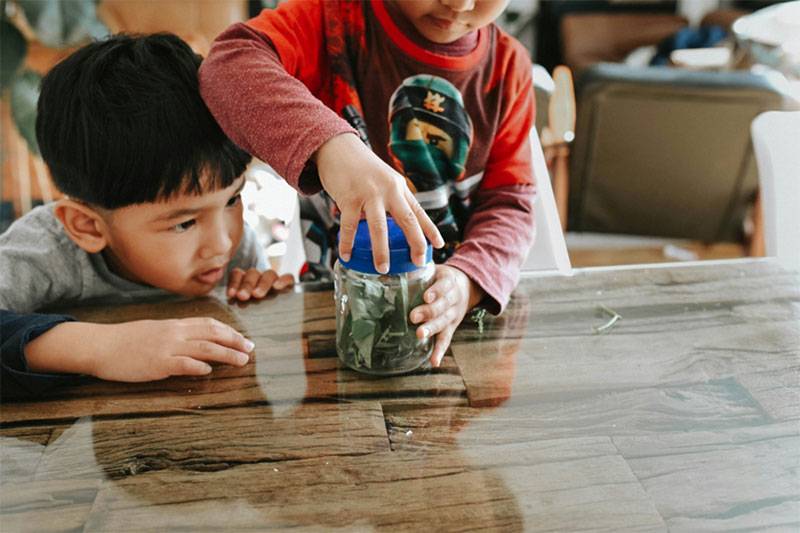How Do Children React To Stressful Situation?

Everyone is facing stress; it is the body’s way of dealing with and adapting to difficult conditions. While a small bit of stress might be beneficial, too much negative pressure can harm children’s mental health in the long run. As a result, children’s stress reduction is important. A child’s age and development will influence how stressful a situation is. Changing instructors in the middle of the year may be a big deal for a first grader and a minor nuisance for a sixth grader. How a kid perceives and responds to stress is influenced by a variety of factors, including development, experience, and temperament. We live in a world that is always changing. Change is occurring at a rate that has never been seen before. New goods and procedures are always being developed, and the rate at which we are exposed to new knowledge is rising all the time. At times, this may be overpowering. We are sometimes able to protect our children from so much change, but this is not always the case.
Stress affects people of all ages. Stress may either assist or impede people’s achievement, ranging from everyday pressures for example worry about making friends or doing well at school or job to severe life-changing stressors for example abuse, disaster, and loss of a family member. Because children are still developing and frequently lack the ability to respond effectively to stress, it may be extremely damaging and disturbing to them. It is important to remember that stress affects children differently than adults since it’s a multisensory experience for them. Understanding how children respond to stress can help you gain a better understanding of the children in your care and will also assist you support them in stressful times. Check out our social-emotional materials for ideas on what you can put in your classroom to help kids cope with stress in a healthy way.
Natural disasters or other traumatic experiences can have a psychological impact on children of any age. Adults are affected psychologically by local catastrophes like Hurricane. Children of all ages can understand tragic events and feel psychological discomfort in comparable ways. Children, on the other hand, are exposed to the same events as adults, but they typically lack the skill or experience to cope with these stresses. As a result, you may see indications of worry, sadness, or stress in your kid in the aftermath of such events. Most of us, particularly youngsters, value some amount of similarity in our lives. That is not to say we do not value novelty and novelty, but we choose consistency over change. Children require time to digest all of the information they are exposed to and to appreciate daily routines and repetition in order to avoid being stressed. They appreciate knowing that when they get home from child care, mother and daddy will prepare dinner, the family will eat, there will be a bath, and then there will be two tales. The regularity of everyday routines appeals to children. In children, stress can manifest itself in a variety of ways, including; worrying excessively about mundane chores that are not necessarily connected to the unpleasant event (homework, getting to school on time), Reflection of a single worry connected to the traumatic occurrence (e.g., worry about the house flooding, worry about losing all of their belongings), Eating problems, Sleeping problems, Getting less pleasure from typically pleasurable activities. When children are faced with a stressful situation, they usually go through three stages:
Alarm
The kid recognizes a threat and takes in the emotional and physical information conveyed by the prospective stressor. Keep in mind that for youngsters, the alarm stage is often irrational.
Evaluation
The youngster assesses the stressor and relates it to previous events in his or her life. The child’s self-efficacy and self-awareness will influence his or her stress assessment.
Managements
The youngster seeks and discovers strategies to cope with the stressor. According to Peterson, how a kid utilizes coping techniques has little to do with their true efficacy and a lot to do with past usage, lack of competence, perceived achievement, and physical discomfort.
The child’s capacity to cope, the amount of time the stressor lasts, the intensity of the stressor, and the level of support from family, friends, and the community all influence how they react to stress. Changes in behavior and regression of behaviors are the two most common indications when children are stressed. When children are stressed, they alter their behavior and respond in ways that are not typical of them. Thumb sucking and toileting regression, which were seen in previous stages of development, may return. Disrespectful attitudes, acting out, engaging in hazardous activities, and withdrawal, as well as emotions of sorrow, anxiety, or despair, may be seen in older children. Some events are welcomed by children, and they can adapt to them with relative ease. Other occurrences may appear to them as dangers to their daily routines or overall well-being, either individually or as a family. These kinds of pressures might be a lot more difficult to deal with.
The majority of stress that children experience is in the middle, neither welcoming nor detrimental, but rather a necessary element of completing childhood chores and learning about themselves. Something bad on the playground, a transfer to a new area, a parent’s serious sickness, or the disappointment of a poor sports performance are all things that children may have to deal with. They may be under continual, persistent pressure to look the correct manner or to have the perfect grades to get into the right college. Children may be concerned about making friends, coping with peer pressure, or overcoming a physical disability or limitation. Children are attentive to not just the changes in their environment, but also to their parents moods and behaviors and it will affects their skin tone also because when they are tension free then their skin will also glow and have no acne so it may be an acne treatment. Even if such sentiments are not expressed explicitly in words, this is true. If a parent loses his or her job, children must adjust to their family’s financial issues; they must deal not just with the visible family budgetary changes, but also with changes in their parents’ emotional states.

